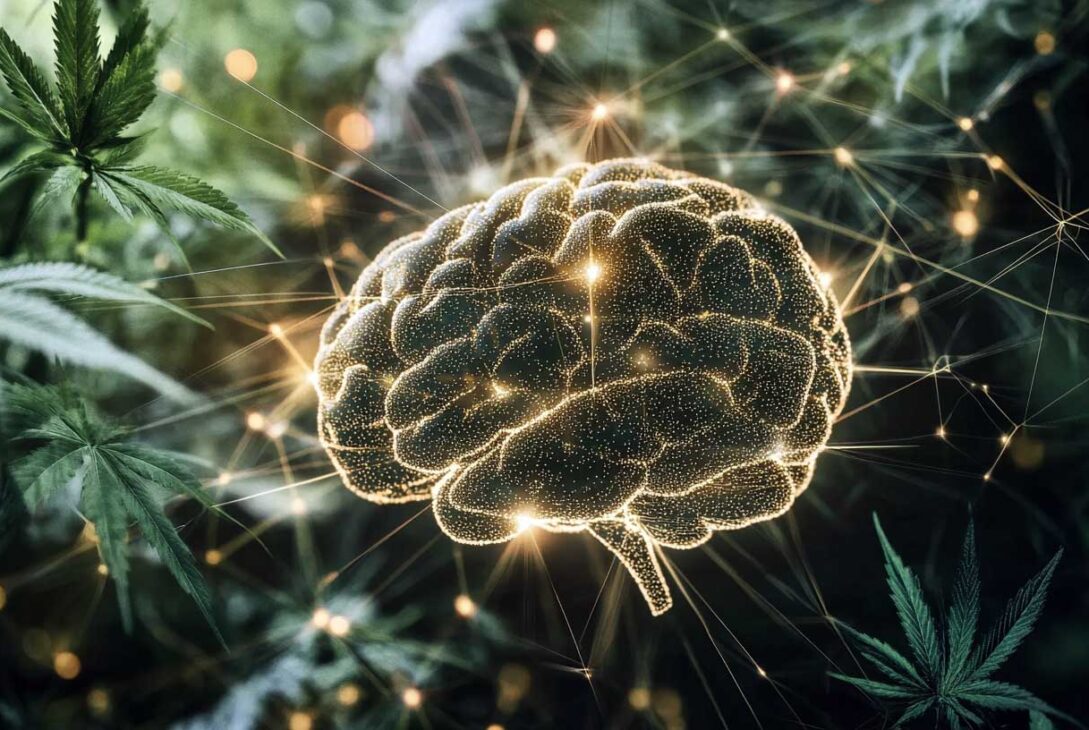Delta-8 THC: Understanding Its Effects on Neuroinflammation and Brain Injury
Introduction
In a world where the cannabis conversation is evolving, Delta-8 THC emerges as a captivating player on the stage. This lesser-known cannabinoid, found in smaller concentrations within the cannabis plant, has gained attention not only for its unique properties but also for its potential benefits in addressing critical neurological issues, such as neuroinflammation and brain injuries. As we explore the nuances of Delta-8 THC, we aim to provide a deeper understanding of its effects and implications for brain health.
What is Delta-8 THC?
Delta-8 THC is an analog of Delta-9 THC, the more commonly known psychoactive compound in cannabis. While they share structural similarities, the placement of a double bond in their chemical structure differs, influencing their pharmacological effects. This slight variation leads to Delta-8 THC producing a milder psychoactive experience, which can appeal to those seeking therapeutic benefits without the intensity often associated with Delta-9.
Delta-8 THC and Neuroinflammation
Neuroinflammation is a biological response that can disrupt normal brain function, often observed in conditions such as traumatic brain injury (TBI), multiple sclerosis (MS), and Alzheimer’s disease. Delta-8 THC has shown promise in modifying this inflammatory response:
- Regulation of Immune Response: Research indicates that Delta-8 THC can help restore immune homeostasis by regulating the activity of immune cells. Specifically, it has been shown to suppress T cell and B cell activity, which plays a significant role in autoimmune responses. For instance, in studies related to MS, Delta-8 THC has demonstrated the ability to reduce the clinical severity of experimental autoimmune encephalomyelitis (EAE) by decreasing inflammatory markers such as IL-17.
- MicroRNA Modulation: Delta-8 THC may exert its neuroprotective effects through the modulation of microRNAs (miRs). These small, non-coding RNA molecules play critical roles in gene expression and cellular processes. By upregulating miRs associated with apoptosis and downregulating those linked to inflammation, Delta-8 THC may effectively diminish neuroinflammatory markers and promote healing.
Delta-8 THC and Brain Injury
Brain injuries, particularly traumatic brain injuries (TBIs), activate a complex cascade of biological responses, including inflammation and oxidative stress. Delta-8 THC offers potential neuroprotective benefits:
- Neuroprotection: The neuroprotective capabilities of Delta-8 THC may help counteract the damage caused by TBIs. It is believed to limit secondary damage by reducing inflammation and oxidative stress, which can exacerbate the injury. For example, studies have shown that the administration of Delta-8 THC after a brain injury can decrease lesion volume and assist in cellular health.
- Clinical Perspectives: While the exploration of cannabinoids for brain injury healing is still burgeoning, initial findings suggest that Delta-8 THC may provide innovative strategies for mitigating injury severity. Its unique properties allow it to function as a protector against inflammation, potentially improving recovery outcomes for individuals post-TBI.
Risks and Considerations
Though the therapeutic potential of Delta-8 THC is compelling, it’s essential to approach its use with mindfulness:
- Individual Responses: Some individuals may report adverse effects, particularly those using Delta-8 THC following a brain injury. There are cases where patients experienced intensified concussion symptoms, underscoring the necessity for caution and tailored medical advice.
- Legal and Regulatory Landscape: The status of Delta-8 THC varies across different jurisdictions. While it may be accessible in some areas, it is crucial to understand local regulations. Additionally, the FDA has issued warnings addressing the marketing of Delta-8 products, highlighting the importance of accurate labeling and quality control for consumers.
Recovery and Neuroprotection
For individuals navigating recovery from brain injuries or chronic neuroinflammatory conditions, Delta-8 THC could provide various supportive benefits:
- Pain Management: With its analgesic properties, Delta-8 THC could aid in alleviating pain associated with neurological issues, potentially providing more comfort during recovery.
- Anxiety Reduction and Sleep Improvement: Many individuals coping with brain injuries report challenges with anxiety and sleep disturbances. Delta-8 THC may help ease anxiety and promote better sleep quality, contributing positively to an individual’s recovery process.
- Long-term Neuroprotection: The combined effects of reducing inflammation and supporting cellular health position Delta-8 THC as a positive aspect of a long-term recovery strategy for neuroprotection.
Conclusion
Delta-8 THC offers intriguing possibilities in the realm of neuroinflammation and brain injury recovery. With its anti-inflammatory, neuroprotective, and analgesic properties, this cannabinoid could play a beneficial role for those dealing with neurological challenges. However, it is vital to approach its use cautiously, particularly for individuals with a history of brain injuries. Consulting with healthcare professionals can ensure a safe and informed approach.
Actionable Tips
- Consult a Healthcare Provider: Discuss your medical history and potential benefits of Delta-8 THC with a healthcare professional before starting its use.
- Start with Low Doses: If you choose to use Delta-8 THC, begin with small doses. This will help you understand your body’s response and adjust as needed.
- Be Mindful of Side Effects: Pay close attention to how you feel and any changes in symptoms. If you encounter any negative effects, reach out to a healthcare provider promptly.
- Stay Updated on Research: Keep informed about new studies and findings related to Delta-8 THC and its effects to make educated choices regarding your health.
By shedding light on the relationship between Delta-8 THC and neuroinflammation, we empower individuals to make well-informed decisions about their health and recovery. Understanding the potential of this cannabinoid can pave the way for exploring its role in holistic healing strategies, promoting a promising future for those affected by neurological issues.





















